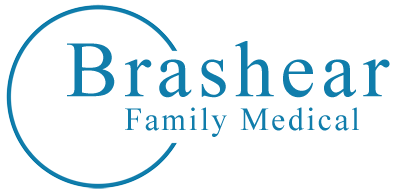September was National Atrial Fibrillation (AFib) Month. However, raising awareness all year long can be beneficial to increase knowledge and understanding.
Atrial Fibrillation
What is Atrial Fibrillation?
Atrial Fibrillation is also known as AFib or AF. It is a type of irregular heartbeat. Typically, your heart beats 60 to 100 times per minute. However, when you have AFib, your heart rate can be as high as 175 beats per minute.
The top part of your heart (the atria) squeezes first, then the bottom part (the ventricles). The time of these contractions is what moves the blood, but for more than 2 million Americans, the electrical signals that control this system are off balance. Instead of working together, the atria do their own thing, which causes the fast, fluttering heartbeat called Atrial Fibrillation.
Signs of AFib
Often times, individuals with AFib will not have any symptoms. This known as silent AFib, which can only be detected during a physical. However, other people can experience one or more of the following symptoms:
- General tiredness or weakness
- Rapid or irregular heartbeat
- Fluttering in the chest
- Dizziness or lightheadedness
- Anxiety or confusion
- Shortness of breath
- Chest pain or pressure
- Low blood pressure
Risk Factors of AFib
Many individuals with AFib also have one or more other health problems, such as the following:
- Age (AFib is more common among individuals 65 and older; about 11% of people over 80 have AFib)
- Family history (an increased risk occurs in some families)
- Gender (women are at a greater risk than men)
- High blood pressure
- Chronic conditions such as diabetes, sleep apnea, thyroid problems, metabolic syndrome, chronic kidney disease or lung disease)
- Heart disease (anyone with heart valve problems, congenital heart disease, congestive heart failure, chronic kidney disease or lung disease)
- Stimulant use (i.e. medications, caffeine, tobacco, alcohol)
- Obesity
Treatment for AFib
While AFib does not go away, not everyone who has it needs treatment (at least not right away). Also, not all AFib treatments are right for every patient. Therefore, treatment options will vary. The following factors will determine your treatment:
- Your risk factors for stroke
- Your ability to tolerate specific treatments (for example, medication side effects or surgical procedures)
- The chance for drug interactions depending on other medications you take
- Your overall health
- Whether you have—or are at risk for—heart disease
Tools and Resources for AFib
We have put together a list of a few helpful tools and resources regarding AFib:
For more information, contact us here at Brashear Family Medical with the link below!


